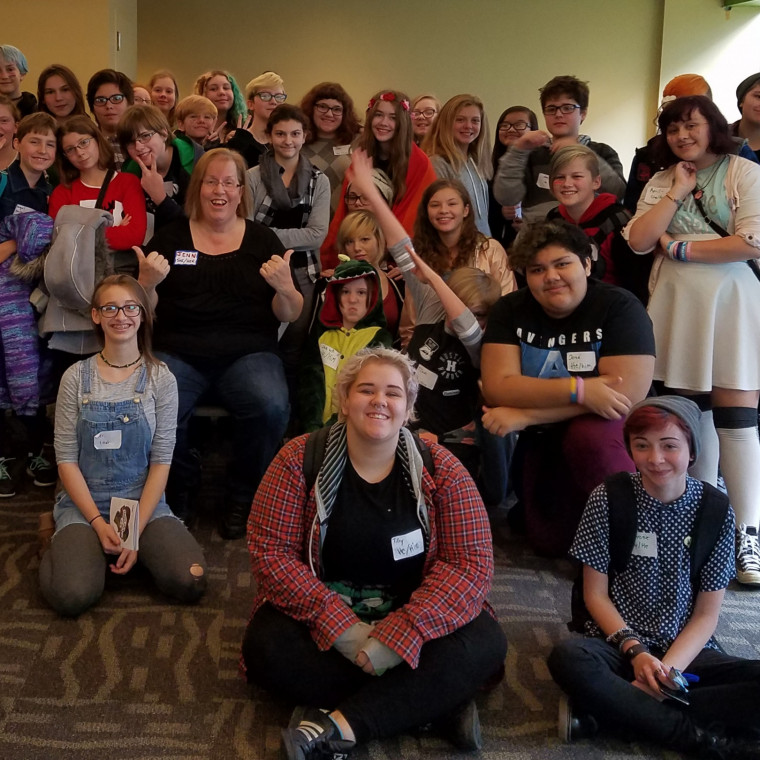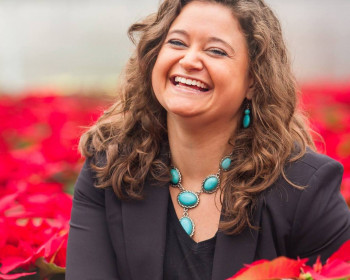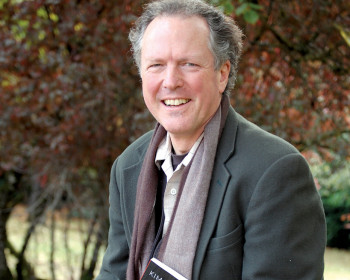Lewis & Clark Graduate School of Education and Counseling Launch TransActive Gender Project
Open gallery

As of January 30, 2018, the education and services programs of the nonprofit organization TransActive Gender Center transferred operations to the Center for Community Engagement at the Lewis & Clark Graduate School of Education and Counseling and has been renamed the TransActive Gender Project.
TransActive’s founder and executive director, Jenn Burleton, will join Lewis & Clark’s staff as Program Director of the TransActive Gender Project. She is a nationally recognized expert on transgender and gender-expansive children, youth, and families.
“The TransActive Gender Project dramatically expands our capacity for programming in support of transgender and gender diverse children and families. Bringing Jenn on as the program director will provide our counseling and education students with an unparalleled resource for addressing the hopes and needs that arise for transgender and gender diverse children in the classroom, workplace, and home,” said Scott Fletcher, dean of Lewis & Clark’s Graduate School of Education and Counseling.
Founded in 2007, TransActive Gender Center was one of the first nonprofit organizations focused on addressing the needs of transgender and gender diverse children, youth, and the families raising them.
Like the graduate school’s recent acquisition of the art therapy master’s program from Marylhurst University, the integration of TransActive into the graduate school’s Center for Community Engagement is part of the graduate school’s strategic expansion of its social justice mission. Moreover, it is about providing Lewis & Clark’s graduate students with knowledge and insights they’ll call upon in their professional and personal lives.
“When my board and I were looking at our long-term strategic roadmap of how we were going to take our education, advocacy and service mission to the next level, we came to the conclusion that a bold step was needed. I felt we needed to find a home within a learning institution committed to the humanities and social justice. When asked by my Board to submit a list of potential institutions, my list was short. Lewis & Clark,” said Burleton. “From the very beginning of my interactions with Lewis & Clark, it was a very immersive and collaborative relationship, nurturing to me personally and to TransActive’s mission and goals.”
In 2017 Oregon became the first state in the nation to allow residents to identify as male, female or not specified X on state ID cards. Though transgender rights advocates have seen increased awareness and some gains at the state level over the past decade, recent federal pronouncements – such as a plan to redefine sex under federal Title IX civil rights laws – are causing consternation and concerns.
“When I began this work, there was (for the most part) zero visibility, awareness, or focus being given to gender identity development and affirmation of gender expansive students. Now, with Lewis & Clark as our home base, we’ll be able to expand our reach, educate and inform more people, and provide more support for transgender youth and adults and their families,” Burleton added. “Bottom line: our work will contribute to happier, healthier outcomes for students in ways that include but go far beyond academic performance. It will save lives. This includes the lives of students who are not themselves gender diverse or transgender, but who may know, live with or love someone who is.”
Matsya Siosal, director of Lewis & Clark’s Center for Community Engagement (CCE), says the move is intended to meet a demand in the region for more information and guidance.
“The community of practitioners and students that CCE serves with our professional development offerings need and want more information about ways to work with transgender and gender expansive people in affirming ways, both on an interpersonal level and within the systemic contexts of the organizations they lead and work in,” said Siosal. “Bringing TransActive into CCE will enable the existing work of both TransActive and CCE to deepen and expand, particularly around the ways in which our programming supports organizations in their ability to create and implement inclusive policies and practices.”
More information is available about TransActive on our website.
About Lewis & Clark
For 150 years, Lewis & Clark has prepared students for lives of local and global engagement. Located in Portland, Oregon, Lewis & Clark is a private institution with a public conscience and international reach, enrolling approximately 2,000 undergraduate students from around the world in our College of Arts and Sciences. Our Law School and Graduate School of Education and Counseling together enroll 1,200 students in graduate professional programs, preparing and training future lawyers, counselors, teachers, and educational administrators. Our alumni, faculty, and students are recognized as global thinkers and leaders. Lewis & Clark’s Center for Community Engagement, which collaborates with professional organizations, educational institutions, community groups, and more to offer personal and professional development in the greater Portland area and beyond. For more information, visit www.lclark.edu.
Graduate Communications is located in room 205 of Rogers Hall on the Graduate Campus.
voice 503-768-6054
fax 503-768-6053
Graduate Communications
Lewis & Clark
615 S. Palatine Hill Road
Portland OR 97219

